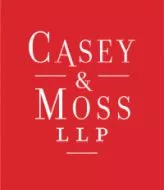When someone is appointed as an executor of an estate or as an attorney under a Power of Attorney, they are usually provided with one original Will or Power of Attorney document signed in wet ink by the testator or principal. This document is known as the "original." While acting in your role as executor or power of attorney, you may be asked to produce the original Will or Power of Attorney to prove that you are authorized to act on behalf of the Estate (if probate has not yet been received) or another person (for attorneyships). These requests usually come from financial institutions, healthcare providers, or the Canada Revenue Agency. Because there is only one original document, it is important to avoid giving it away permanently. A solution to this is to have notarized copies made.
What is a notarized copy?
A notarized copy of a document is a true copy of an original, meaning that the copy is verified to match the original exactly. This is done by a notary public (usually a lawyer or government official). A notarized copy includes a notarial certificate on the first page, which states the name of the notary and their attestation that the copy is a true copy of the original document. The certificate is signed by the notary and embossed with a red stamp called a "notary seal". In most cases, a notarized copy holds the same validity as the original document. However, there are some circumstances where a notarized copy cannot be used (i.e. when you are applying to the court for probate).
Generally, our clients find it helpful to obtain several notarized copies of any original documents they hold, such as death certificates, original wills, powers of attorney, and probate certificates.
The content of this article is intended to provide a general guide to the subject matter. Specialist advice should be sought about your specific circumstances.


